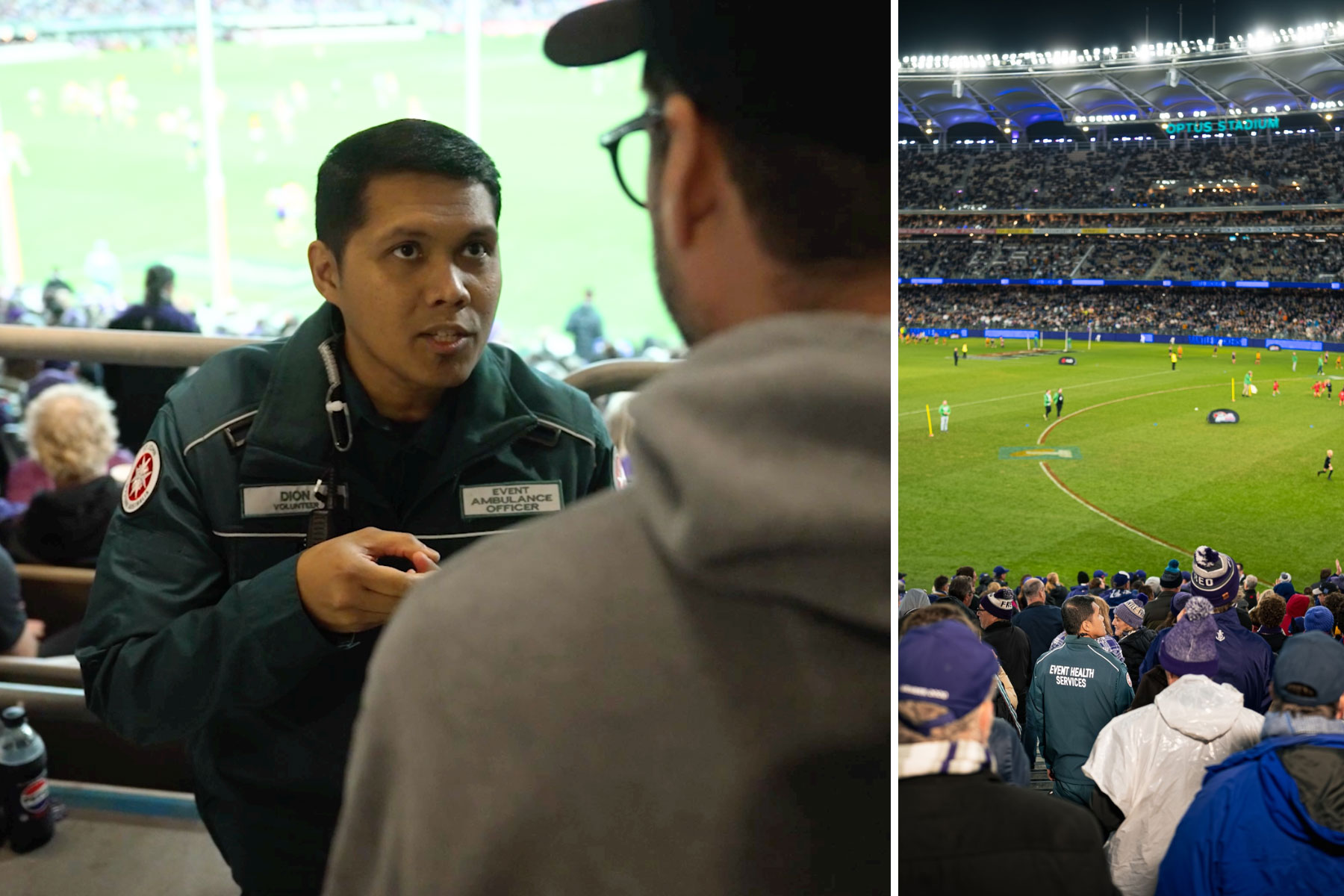Volunteerism is the selfless act of offering time and service to support individuals and communities without expecting anything in return. In nursing, it is more than just a generous gesture. It is a way of life that reflects the profession’s core values (Senturk & Turan Tuyluoglu, 2022). During the Crimean War, the volunteering spirit of service drew back to Florence Nightingale, who volunteered her time and skills to care for injured soldiers (Karimi & Masoudi Alavi, 2015). Her legacy laid the groundwork for modern nursing, highlighting the importance of compassion, commitment, and service.
One of the most frequent questions I received when I was a student nurse and even now as a registered nurse is, “How do you manage your time, and why did you still find time to volunteer?” My simple answer is that my passion for volunteering drives me and reminds me why I chose nursing. To care, serve, and grow. My way of giving back to the community also shaped me. As a volunteer Emergency Ambulance Officer (EAO) with the Event Health Service under St John Ambulance WA, I supported various public events across Western Australia. This type of medical volunteer role involves providing first aid and emergency medical assistance at public events, for example, the Perth Royal Show, where I treated numerous patients and gained valuable experience in clinical decision-making, teamwork, and patient care.
In light of Australia’s National Volunteer Week, it is an opportunity to acknowledge and promote the contributions of volunteers across various sectors, including health care. This national awareness week highlights volunteers’ essential role in strengthening communities and improving public wellbeing.
Fostering nursing growth through volunteerism
Volunteering during undergraduate studies offers students an exceptional awareness of the reality of the healthcare environment (Williamson et al., 2018). Nursing programs and healthcare institutions increasingly recognise the value of volunteer work in shaping future professionals. Across Australia, many universities encourage students to engage in volunteer initiatives as part of their curriculum or through co-curricular development opportunities. These may include mentoring fellow students, joining university guild activities aligned with their interests, or contributing to student-led health and wellness campaigns. Through such engagement, students gain exposure to various healthcare delivery settings by participating in community health outreach programs, providing first aid at public events, and volunteering in aged care facilities. In these environments, students often assist with lifestyle and wellness activities, offer companionship, and support basic care under supervision. These experiences enrich students’ understanding of holistic, patient-centred care and provide opportunities to apply theoretical knowledge in actual situations. Moreover, volunteer involvement fosters the development of practical skills, cultural competence, empathy, and a deeper appreciation for vulnerable populations, ultimately enhancing both personal growth and professional readiness (Dohnalova & Zelenkova, 2024).
Five benefits of volunteering as an undergraduate nursing student
1. Enhancement of clinical competence
Volunteering in clinical or health-related settings provides a low-risk environment to apply learned concepts and sharpen nursing skills. Opportunities like supporting first aid posts during public events help students practise basic first aid and health assessments. These real-life encounters reinforce theoretical knowledge and help build sound clinical judgment and confidence (Strkljevic et al., 2024).
2. Developing cultural competence and adaptability
Australia’s healthcare landscape is increasingly multicultural (Dune et al., 2021). Volunteering in community outreach programs, migrant support centres, or rural health missions offers students a first-hand view of various populations’ diverse health beliefs, practices, and challenges. This exposure nurtures cultural humility and encourages adaptable communication styles. Educating about culturally appropriate care prepares students to meet patients’ unique needs and supports inclusive healthcare delivery (Anton-Solanas et al., 2021).
3. Building emotional intelligence and strengthening resilience
Emotional intelligence is essential in nursing (White & Grason, 2019). Volunteering with vulnerable populations helps students develop empathy, reflective listening, and emotional adaptation skills. Volunteering in aged care, for example, allows students to build meaningful relationships with residents, understand end-of-life care, and navigate emotionally challenging situations. These encounters cultivate compassion, patience, and resilience, which sustain mental health and promote professional sustainability (Barker et al., 2022).
4. Cultivating professional confidence and shaping nursing identity
Taking on leadership roles within nursing student societies or professional organisations such as the Australian College of Nursing (ACN) allows students to get involved, influence decisions, organise initiatives, and represent their peers in broader discussions. These responsibilities empower students to advocate for change, develop autonomy, and build a sense of purpose in their careers. Volunteerism within these platforms reinforces their identity as future leaders and supports their advancement into proactive, engaged nursing professionals (Strkljevic et al., 2024).
5. Enhancing job readiness and career advancement
From an employer’s perspective, volunteer experience reflects initiative, teamwork, and a strong work ethic. Students who have contributed to health campaigns, mentored peers, or supported wellness initiatives stand out in job applications. These experiences cultivate soft skills such as collaboration, organisation, and time management, essential in clinical settings. Furthermore, volunteering fosters professional networking and mentorship opportunities that increase employability and career prospects (Giancaspro & Manuti, 2021).
Volunteerism: A roadmap for new nurses
Volunteerism significantly connects academic learning and clinical practice, especially for undergraduate and new graduates. Students build practical skills aligned with their interests and future goals by engaging in areas like emergency response, aged care, health promotion, or advocacy.
University-based nursing societies, student councils, and national organisations like the Australian College of Nursing (ACN) provide platforms for participation through leadership programs such as the Emerging Nurse Leader (ENL) program. Local healthcare facilities welcome student volunteers, offering diverse and practical experiences.
My experience as a Stage 2 ENL has been a significant milestone in my volunteer journey. Being part of this initiative has allowed me to connect with like-minded peers, engage in leadership development activities, and contribute to ACN-led projects that advocate for the nursing profession. It broadened my perspective on how nurses can influence health care beyond the bedside through policy, mentorship, and community leadership.
This experience deepened my understanding of nursing leadership and strengthened my confidence, communication skills, and professional identity. It inspires me to lead purposefully and contribute meaningfully to the future of nursing in Australia.
Healthcare employers value such initiatives. Volunteerism signals commitment, adaptability, and leadership, which are vital in modern nursing. More than a resume booster, it is a journey of growth, compassion, and service that shapes students into capable, community-centred professionals ready to lead.
Special thanks
Andionie would like to thank the ACN Global Nursing Faculty and its Chair, Dr Caroline Browne MACN—his ENL mentor—for their unwavering support.
If you are feeling inspired to follow in Andionie’s footsteps, the Emerging Nurse Leader Program provides a unique opportunity to volunteer, build your profile within the profession, and be guided by one-on-one mentoring. Offered free of charge as an exclusive benefit to ACN members, the program supports early-career nurses to step into leadership and shape the future of nursing.
Learn more and apply via the ACN Institute of Leadership website.
Author: Andionie Rapiz MACN
Andionie Rapiz MACN completed a Bachelor of Science in Nursing in the Philippines in 2008 and graduated from the Bachelor of Nursing with advanced standing at Murdoch University, Western Australia, in 2024 as an international student. While studying, he actively volunteered as an Emergency Ambulance Officer and Development Officer with St John Ambulance WA.
He currently practises as a registered nurse at Peel Health Campus – Medical Ward, under the South Metropolitan Health Service. Andionie is a 2025 Stage 2 ACN Emerging Nurse Leader and a Certified Research Specialist. He serves on the Leadership Team of the ACN Global Nursing Faculty and is a member of Sigma Theta Tau International Honor Society of Nursing, where he has held the role of Leadership Succession Chair for the Psi Alpha-at-Large Chapter in Western Australia. Passionate about service, research, and professional development, he is committed to advancing nursing leadership and evidence-informed practice.

References
Antón-Solanas, I., Tambo-Lizalde, E., Hamam-Alcober, N., Vanceulebroeck, V., Dehaes, S., Kalkan, I., Kömürcü, N., Coelho, M., Coelho, T., Casa Nova, A., Cordeiro, R., Sagarra-Romero, L., Subirón-Valera, A. B., & Huércanos-Esparza, I. (2021). Nursing students’ experience of learning cultural competence. PLOS ONE, 16(12), e0259802. https://doi.org/10.1371/journal.pone.0259802
Barker, M.-E., Crowfoot, G., & King, J. (2022). Empathy development and volunteering for undergraduate healthcare students: A scoping review. Nurse Education Today, 116, 105441. https://doi.org/10.1016/j.nedt.2022.105441
Dohnalová, Z., & Zelenková, I. (2024). Unveiling the synergy: Volunteerism, service learning, and community engagement in academic settings. EDULEARN24 Proceedings, 1587–1596.
Dune, T., McLeod, K., & Williams, R. (2021). Culture, diversity and health in Australia: Towards culturally safe health care. Routledge.
Giancaspro, M. L., & Manuti, A. (2021). Learning to be employable through volunteering: A qualitative study on the development of employability capital of young people. Frontiers in Psychology, 12, 574232. https://doi.org/10.3389/fpsyg.2021.574232
Karimi, H., & Masoudi Alavi, N. (2015). Florence Nightingale: The mother of nursing. Nursing and Midwifery Studies, 4(2), e29475. https://doi.org/10.17795/nmsjournal29475
Şentürk, M., & Turan Tüylüoğlu, B. (2022). Defining volunteerism. In Volunteerism and working with volunteers (pp. 41–60).Strkljevic, I.,
Tiedemann, A., Souza de Oliveira, J., Haynes, A., & Sherrington, C. (2024). Health professionals’ involvement in volunteering their professional skills: A scoping review. Frontiers in Medicine (Lausanne), 11, 1368661. https://doi.org/10.3389/fmed.2024.1368661
White, D. E., & Grason, S. (2019). The importance of emotional intelligence in nursing care. Journal of Comprehensive Nursing Research and Care, 4(152), 1–3.
Williamson, I., Diane, W., Katie, B., Judith, T., & Matthews, H. (2018). Benefits to university students through volunteering in a health context: A new model. British Journal of Educational Studies, 66(3), 383–402. https://doi.org/10.1080/00071005.2017.1339865





